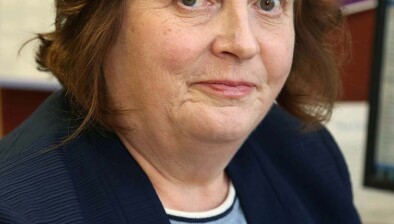Supreme Court: HSE was correct to suspend consultant gynaecologist for performing experiments on patients without consent

The Supreme Court has held that the HSE’s CEO was entitled to suspend a consultant obstetrician and gynaecologist after he had performed experiments on several patients without their consent. The Court of Appeal had previously ruled the ongoing suspension to be unlawful, holding there was no evidence that the consultant represented an immediate threat to the health of patients.

About this case:
- Citation:[2023] IESC 11
- Judgment:
- Court:Supreme Court
- Judge:Ms Justice Elizabeth Dunne
Delivering the main judgment in the case, Ms Justice Elizabeth Dunne held that the proper standard of review for suspension was found in Braganza v. BP Shipping Limited [2015] 1 W.L.R. 1661. If an employer could demonstrate “honesty, good faith and genuineness and the […] absence of arbitrariness, capriciousness, perversity and irrationality” then a court would not interfere with a decision to suspend an employee.
Having regard to the evidence in the case, the HSE’s decision to suspend the consultant was not arbitrary or irrational, the court held.
Background
The consultant worked at St. Luke’s Hospital in Kilkenny from 2006. He was employed under a Consultants’ Contract 1998. On 4 and 5 September 2018, five women attended the hospital for hysteroscopy procedures.
During the procedures, the consultant conducted a so-called “feasibility study” which involved measuring the internal pressure of the vaginal wall. None of the women had been told about or consented to the procedure. Further, the consultant had not sought ethical approval for the experiments and the relevant hospital authorities had not been informed. Finally, he had used equipment that he had privately purchased from a recognised supplier.
The practice came to light shortly after the procedures. In October 2018, the hospital conducted an external investigation of the incidents. This review concluded that the feasibility study had not been carried out ethically or in accordance with good practice, although it was not said that the consultant was a risk to patient safety.
The hospital decided to inform the women of the experiments. Although none had suffered physical harm, they each presented with psychological problems after learning about the incidents.
Further views were sought from the Clinical Director of the National Women and Infants Health Programme, which resulted in a SAR Report. It outlined inter alia that the consultant did not seem to have insight or remorse for his actions.
Appendix IV of the consultant’s employment contract contained the disciplinary procedure. Under the contract, the HSE’s CEO had the power to place the consultant on administrative leave with pay where it appeared to the CEO that the consultant’s conduct may pose an “immediate and serious risk to the safety, health and welfare of patients”.
In August 2019, the CEO placed the consultant on administrative leave pending the completion of the investigation. The CEO outlined his concerns for patient welfare and safety.
A further report was obtained from a highly experienced gynaecologist in December 2019. The report (the O’Hare report) concluded that the consultant’s conduct had fallen below the expected standard but stated that the consultant did not pose an immediate or serious risk to patient safety.
Ultimately, the CEO determined that he would remove the consultant from his employment with the HSE. The consultant issued judicial review proceedings.
The High Court dismissed the challenge but the Court of Appeal overturned the decision in part. In particular, the Court of Appeal held the decision to suspend the consultant had not been made in accordance with fair procedures and there were no adequate reasons provided for departing from the O’Hare report. Accordingly, the Court of Appeal ruled that the consultant should be reinstated.
The HSE appealed the decision to the Supreme Court. Although the parties had resolved the matter by the time of the appeal, it was agreed that the Supreme Court should adjudicate on the issues.
Supreme Court
Ms Justice Dunne began by assessing whether the decision to place the consultant on administrative leave was lawful. The court differentiated between administrative leave with pay and punitive suspension, and stated that administrative leave should only continue until the full hearing of a disciplinary matter (see Flynn v. An Post [1987] I.R. 68; Deegan v. Minister for Finance [2000] 11 E.L.R. 190). There was no doubt that the process of suspension could not “drag on indefinitely”, the court said.
Considering the duty imposed on the CEO when making a decision to suspend a consultant, the court outlined the extensive engagement with the consultant’s solicitors and the numerous reports obtained in the matter. The court also noted that placing an individual on administrative leave did not impose the same level of fair procedure requirements as a full disciplinary hearing (see Bank of Ireland v. Reilly [2015] IEHC 241; Deegan v. Minister for Finance).
In the circumstances, the court was satisfied that the decision to place the consultant on leave was not flawed. The court commented that in cases of extreme urgency, it may not be possible to take the steps that were taken in the present case.
Turning to the standard of review for the CEO’s decision to place the consultant on administrative leave, the court held that the appropriate test was found in the Braganza case. There, it was held that a decision-maker’s discretion would be limited by the concepts of good faith, honesty and genuineness, and the absence of arbitrariness, capriciousness, perversity and irrationality.
Accordingly, it followed that the decision could only be impugned “where it was one that no reasonable decision-maker could have reached, but also where the decision-making process had failed to exclude extraneous considerations, or to take account of all obviously relevant ones”.
Applying the principles to the present case, the court held that the CEO was clearly concerned with the lack of informed consent and the consultant’s lack of insight into his actions. Further, it was pointed out that the contractual terms did not require the CEO to reach a conclusion that there was an immediate/serious risk to patient safety, only that there may be such risk.
The emphasised the importance of informed consent to medical procedures and the patients’ adverse reactions to learning that the experiments had occurred. As such, there was significant evidence available to the CEO regarding the health and safety of patients.
While the O’Hare report outlined that safety and welfare was not an immediate or serious risk, a letter from the CEO in December 2019 clearly explained why he did not agree with the conclusions.
The court held that, based on the Braganza principles, the mere receipt of the O’Hare report was not enough to invalidate the decision to suspend, assuming the decision was made bona fide.
The court stated: “The key test is whether or not it ‘appears’ to the CEO that there ‘may’ be an immediate and serious risk to the safety, health or welfare of patients. At the time of the letter to Professor O’Sullivan on the 6th August, 2019, there was a wealth of information available to the CEO from which it was possible for him to reach the conclusion that there may have been an immediate and serious risk to the safety, health and welfare of patients at that time.”
Conclusion
Accordingly, the court held that the Court of Appeal was incorrect and allowed the HSE’s appeal. As such, the decision to suspend the consultant was lawful.
O’Sullivan v. HSE [2023] IESC 11











